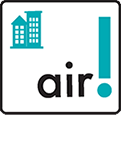More and more tenants are voicing concerns that the tobacco smoke produced by neighbors is seeping into their own homes, often causing annoyance, discomfort, and sometimes, illness. These concerns are best resolved amicably, through discussion and reconciliation between neighbors and building managers. However, when this is not possible, legal action may be warranted.
Such legal actions have been brought across the United States, sometimes leading to out-of-court settlements, other times to verdicts in favor of one of the parties.
The following are possible legal options available to you if you are exposed to secondhand smoke:
Common Law Theories.
These are claims that may be available to a non-smoker suffering from exposure to secondhand smoke. Claims may be viable against the offending neighbor, the landlord or both.
- Breach of covenant of quiet enjoyment
- Breach of warranty of habitability
- Constructive eviction
- Negligence
- Nuisance
- Battery
- Intentional infliction of emotional distress
- Trespass
Maryland has joined with other courts across the country and upheld numerous smoking restrictions. Here are some relevant opinions:
- A U.S. District Court in Maryland and the Supreme Court of the United States have found that there is no fundamental right to smoke and that the act of smoking is entitled to only a minimal level of protection under the Equal Protection Clause. Brashear v. Simms, 138 F. Supp. 2d 693 (D. Md. 2001); McGinnis v. Royster, 410 U.S. 263 (1973).
Click here for a list of related cases
- Babbitt v. Superior Court (Court of Appeals 4th District, California, 2004 (unreported))
- Dworkin v. Paley, Ohio Court of Appeals (1994)
- Harwood Capital Corp. v. Carey (Boston Housing Court 2005)
- Merrill vs. Bosser, Broward County, Florida (2005)
Americans with Disabilities Act and Fair Housing Act.
Non-smoking tenants who are afflicted with breathing disorders may use the Americans with Disabilities Act and/or the Fair Housing Act to bring legal action against landlords for not making reasonable accommodations to protect these tenants from secondhand smoke in common areas or in their apartments. Read more about disability law and second-hand smoke
Other Possible Legal Action:
- Violation of specific lease provisions (such as landlord’s obligation to prevent or remedy a nuisance)
- Violation of State and Local Building Codes
- Violation of State Sanitary Codes
